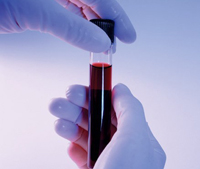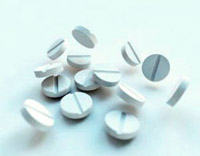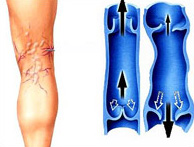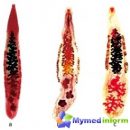The diagnosis of antiphospholipid syndrome during pregnancy is based on laboratory indicators. In the treatment of antiphospholipid syndrome, drugs are used, overwhelming the activity of the immune process.
Content
Antiphospholipid syndrome diagnosis methods
For effective diagnosis of antiphospholipid syndrome, an integral assessment of the data development of the disease, major symptoms and laboratory data is important. This allows you to correctly assess the risk of developing complications and to assign the necessary therapy in a timely manner. In the conduct of pregnant and pupils suffering from antiphospholipid syndrome, careful control over the activity of the autoimmune process, the state of the blood coagulation system, prevention, diagnosis and treatment of emerging disorders.
The main criteria for the diagnosis of antiphospholipid syndrome are indications of episodes of venous and arterial thrombosis, confirmed by laboratory or instrumental research data. An important role is also played by data on the pathological course of previous pregnancies:
- Spontaneous abortions up to 10 weeks of pregnancy for unexplained reasons, when the death of the embryo (fetus) is unlikely due to genetic causes
- Fruit death in terms of more than 10 weeks, premature genera, on the background of heavy gestosis and placental failure
Laboratory criteria for antiphospholipid syndrome:
- The presence of anti-kardolypin antibodies of IGG or IgM
- Detection of a lupus anticoagulant in blood plasma
It is possible to assume the development of antiphospollipid syndrome in the presence of autoimmune diseases, the usual non-pending pregnancy (not related to endocrine, genetic reasons, anomalies of the development of genital organs, organic or functional exhausco cervical insufficiency), with the early development of gestosis, especially difficult forms, placental insufficiency, hypotrophy Fetal during previous pregnancies, flame-positive reactions of Wasserman.
Treatment of antiphospholipid syndrome
 To suppress the autoimmune process, it is advisable to appoint glucocorticoid therapy as preparation for pregnancy. Small doses of prednisolone (5 mg) or methipred (4 mg per day) make it possible to reduce the activity of the autoimmune process and prevent the development of violations by the coagulation system of blood. Steroid therapy should be carried out throughout the pregnancy and within 10-15 days of the postpartum period, followed by gradual cancellation.
To suppress the autoimmune process, it is advisable to appoint glucocorticoid therapy as preparation for pregnancy. Small doses of prednisolone (5 mg) or methipred (4 mg per day) make it possible to reduce the activity of the autoimmune process and prevent the development of violations by the coagulation system of blood. Steroid therapy should be carried out throughout the pregnancy and within 10-15 days of the postpartum period, followed by gradual cancellation.
To prevent the reactivation of viral infection against the background of taking glucocorticoids in patients with antifoslipide syndrome, an intravenous drip administration of immunoglobulin is carried out at a dose of 25 ml in a day (3 doses). Introduction of similar small doses of immunoglobulin is advisable in the first trimester of pregnancy, on the period of 24 weeks and before childbirth.
Special attention is paid to the correction of violations in the blood coagulation system. When the platelets are activated, antiagregants are prescribed - Kuraltil (75-150 mg daily), Trental (300-600 mg) or the mononic (0.045 mg per day). Controlling blood coagulation system should be carried out 1 time in 2 weeks.
In cases where the pathological activity of platelets is combined with an increase in activity in the plasma link and the appearance of signs of intravascular coagulation is reasonable to use small doses of heparin (5,000 units 2-3 times per day subcutaneously). The duration of heparinotherapy is determined by the degree of severity of blood system disorders. Using small doses of aspirin (80-100 mg per day) contributes to the potentiation of the action of heparin. Low molecular weight heparins are widely used to treat antiphospholipid syndrome. The use of these drugs in small doses does not require strict control over the state of the blood coagulation system as when using conventional heparin.
As an additional method of treatment of antiphospholipid syndrome, plasmapheresis use. The use of this method allows to normalize the rheological properties of blood, reduce excessive activation of the coagulation system of blood, reduce the dose of corticosteroid preparations and heparin, which is especially important in their poor tolerability. The main therapeutic effects of plasmapheresis include:
- detoxification
- correction of blood rheological properties
- Immocorrection
- Increased sensitivity to drugs
Of particular importance in the treatment of patients with antiphospolipid syndrome, the removal of antiphospollipid autoantibodes, immune complexes, immunogenic plasma proteins, autoantigen, which reduces the activity of the autoimmune process to reduce the activity of the autoimmune process. Plasmapheresis can be used as preparation for pregnancy and during it and is an effective method of treating patients with antiphospholipid syndrome.









